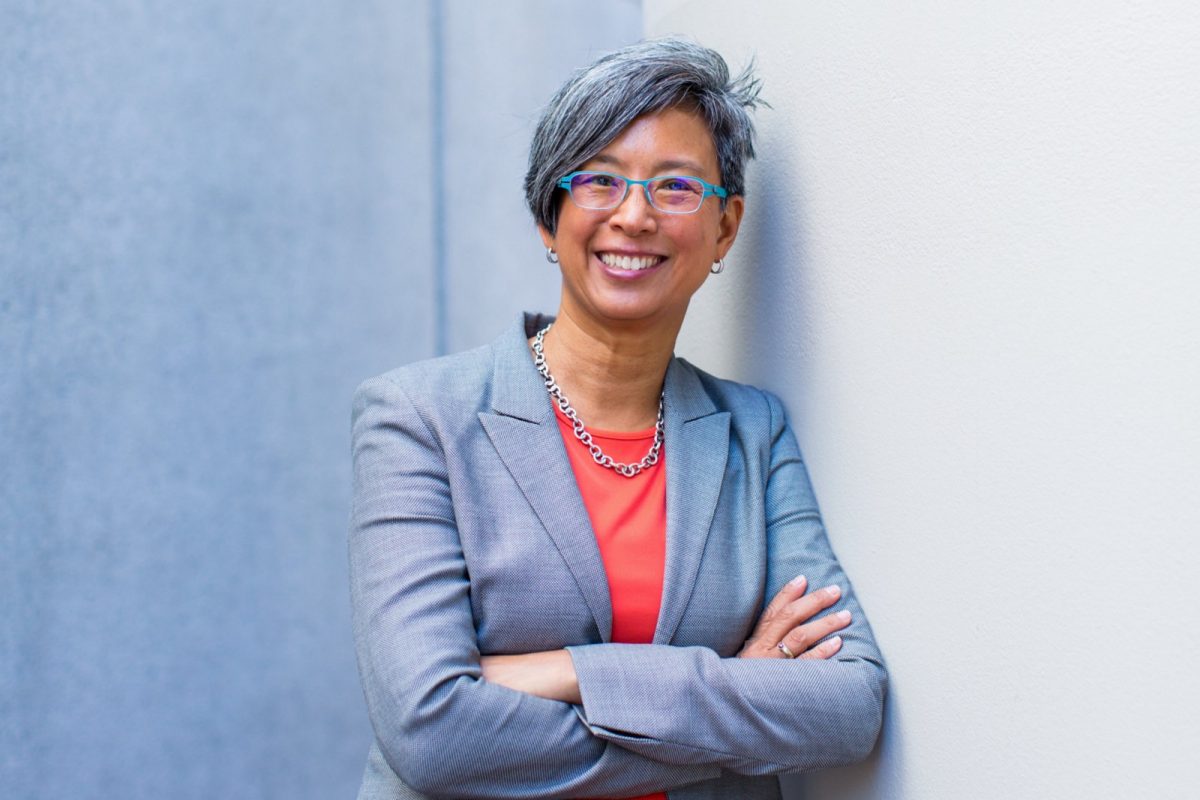Ann Mei Chang, former chief innovation officer at USAID and former senior engineering director at Google, thinks that mission-driven organizations should act more like Silicon Valley startups. At a presentation at the Blum Center, she outlined her recent book, Lean Impact: How to Innovate for Radically Greater Social Good–which builds off Eric Reis’ best-selling Lean Startup, a veritable bible for iterative business development.
Chang is in a unique position to analyze how and why innovation works across sectors. In addition to working at USAID and Google, she has served as chief innovation officer at Mercy Corps, senior advisor for women and technology at the State Department, and director of product development at Intuit.
“Lean Impact is a strategy for maximizing social benefit in the face of complex societal challenges,” she said.
Chang presented three guiding principles for change-makers, nonprofits, and social enterprises to achieve social innovation: 1) Think Big–set an audacious goal to achieve exponential growth; 2) Start Small–run fast experiments to accelerate the pace of learning, save time and money, and minimize risk; and 3) Relentlessly Seek Impact–fall in love with the problem, not the solution, and accept failure as a natural part of the process.
For each principle, Chang provided examples from her book, which includes interviews with over 200 leaders of successful nonprofits worldwide.
Chang highlighted NexLeaf Analytics, a nonprofit that builds and deploys wireless sensors. NexLeaf’s goal was to increase the use of clean cookstoves to reduce harmful emissions in rural parts of India. To do so, the nonprofit installed sensors on the cookstoves to measure usage and found there was no correlation between self-reported usage and the actual usage; users had both underreported and overestimated their usage.
Through this example, Chang stressed that observing user behavior is far more accurate than asking hypothetical questions and talking to focus groups, as users will often say what they think you want to hear or inaccurately predict their own reactions.
Chang also highlighted a Kenyan company called Copia Global, which set out to make affordable consumer goods accessible to remote villages in Kenya. To get the company off the ground, the founder began testing what low-income villagers most wanted to buy. He asked: Would they be receptive to ordering from a catalog? What goods would they want? Which agents would be most effective? Though a series of iterations, the founder determined that people would order from catalogs, determined the most popular products, and identified the most effective selling agents. Copia Global now calls itself “the best of Amazon plus Fedex plus a healthy dose of emerging market expertise for underserved communities.”
Chang emphasized that scaling a social innovation is not easy. But she assured the audience that big goals and continual iteration are key.
“Be ambitious,” she told UC Berkeley students. “Don’t be afraid to set an audacious goal and relentlessly seek impact by falling in love with the problem.”
